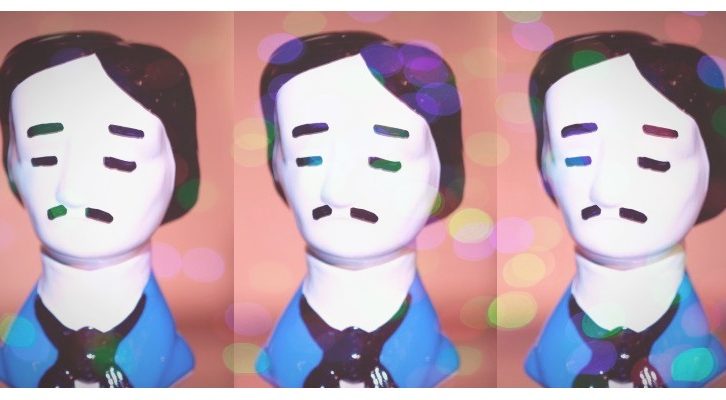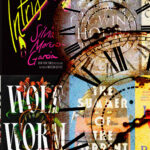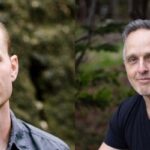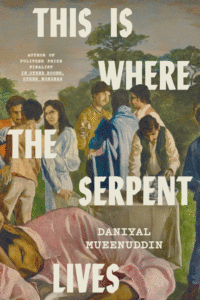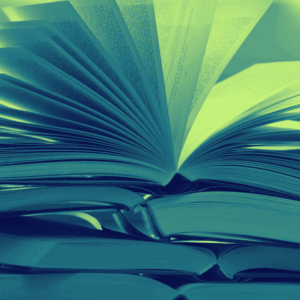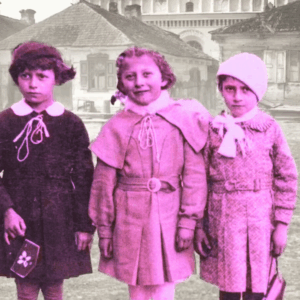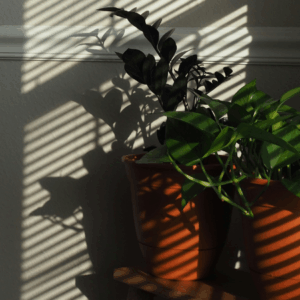
Meet National Book Award Finalist Jarrett J. Krosoczka
The Author of Hey, Kiddo on Forgetting Everything He's Learned
The 2018 National Book Awards will be held on Wednesday, November 14 at the 69th National Book Awards Ceremony and Benefit Dinner at Cipriani Wall Street in New York City. In preparation for the ceremony, and to celebrate all of the wonderful books and authors nominated for the awards this year, Literary Hub will be sharing short interviews with each of the finalists in all five categories: Young People’s Literature, Translated Literature, Poetry, Nonfiction, and Fiction.
Jarrett J. Krosoczka’s Hey, Kiddo (Scholastic), a powerful graphic memoir about growing up with a missing father and a mother addicted to heroin, is a finalist for the 2018 National Book Award in Young People’s Literature. Literary Hub asked Jarrett a few questions about his book and life as a writer.
*
Who do you most wish would read your book? (your boss, your childhood bully, Michelle Obama, etc.)
I wish that my mother, Leslie, would have been able to read Hey, Kiddo. She died of a heroin overdose while I was revising the book. She knew that I was tackling the subject matter of my upbringing, but I think that she would be taken aback, in a good way, by how nuanced and gently I handled her representation in the book. Leslie’s addiction shattered our family, and she was often blamed for that, but in the book, I also show how she suffered from her addiction. If she were here, I like to think she’d be offering to sign books for people at my readings.
Who was the first person you told about making this list?
I told my wife, Gina. But I tortured her because she knew that it was the day that finalists would be announced and instead of calling or texting, I walked into her office with my head hung low. Then I looked up and grinned ear to ear. She screamed with joy.
How do you tackle writer’s block?
If I am stuck on a particular scene, it helps to walk away for a bit and get some exercise. I am especially fond of taking a hike in the woods with my pugs before sitting down to work again.
Which non-literary piece of culture—film, tv show, painting, song—could you not imagine your life without?
I could not imagine my life without film. There is a direct connection between film and graphic novels. You are telling stories with words and pictures, and you are constantly framing scenes—concerning yourself with where the “camera” is and how you are staging the “actors” on the set. I approach the front matter of my graphic novels in a very similar way that filmmakers introduce their story over the opening credits.
What’s the best writing advice you’ve ever received?
The best advice I received as a graphic novelist is detailed in Hey, Kiddo. As a teen, I read a how-to-draw-comics book cover-to-cover. Mark Lynch, an art instructor of mine at the Worcester Art Museum, told me to forget everything I’d learned. He encouraged me to explore my own style and to find my own way of telling a story sequentially. Had he not pushed me in that direction, there’s no way that I would have ever imagined approaching a story like mine as a graphic memoir.
Young People’s Literature is now often seen as being more conscientious about representation (including ethnicity and race, a more broad spectrum of sexuality and gender, etc) functioning as both a window and a mirror to our culture. What do you see as the future of YPL, and what lessons would you like the wider industry to take away from the evolution of YPL?
My colleagues in children’s literature are creating works that are remarkable and important. As for what I see in the future? I hope to see us all continue in this direction that we are headed—creating literature for young readers that is inclusive and representative of the beautiful spectrum that is our audience. Programs like We Need Diverse Books have put us on the right track, but we are only getting started, there is much work to be done by us all. There is enough space on our kids’ bookshelves for all of our stories, and I hope that we continue to lift one another up, bringing in more authors with diverse backgrounds to the page.
Emily Temple
Emily Temple is the managing editor at Lit Hub. Her first novel, The Lightness, was published by William Morrow/HarperCollins in June 2020. You can buy it here.











